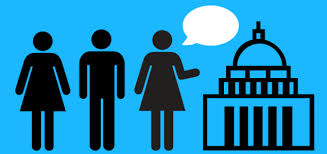Media commentary about the fine line between political influence and corruption has been plentiful over the past week. Many different writers have expressed discomfort at the notion of donors to a private charity being granted meetings with senior State Department officials. Absent evidence of direct quid pro quo corruption, these writers have argued that providing such donors with personal access to the highest levels of government still creates a troubling appearance of conflict of interest.
These arguments highlight the fact that “corruption” is a term with many disparate definitions depending on the context. In standard political language, “corrupt” is a vague, shorthand insult that goes beyond direct bribery. It encompasses incidents that appear to show small, powerful, insulated groups benefiting from having “unfair” levels of access and influence compared to the average American.
In campaign finance law, the definition is much more precise. The landmark 1976 case, Buckley v. Valeo, allowed government regulation of direct donations to candidates only in order to prevent the occurrence or appearance of a quid pro quo exchange of contributions for official actions. In the wake of 2010’s Citizens United v. FEC, critics charged that corruption would increase because, even without donating directly to a candidate, corporate figures could build goodwill and gain the ear of a lawmaker by running political ads on their behalf. Writing for the majority in that case, however, Justice Anthony Kennedy specifically stated that “Ingratiation and access, in any event, are not corruption.”
These differing perceptions of what constitutes “corruption” may help explain why the political goals of speech regulation activists have often been frustrated by the legal reality of First Amendment jurisprudence. Controversies about relationships between specific donors and lawmakers might change individual behavior through targeted public pressure, but there are few concrete proposals for systemic reform that would prevent unsavory ingratiation and access.
We should certainly approach any serious regulatory efforts in this area with caution. Restricting meetings and conversations between lawmakers and private citizens would go far beyond the existing legal mandate for campaign finance regulations. Indeed, while Justice Kennedy said in Citizens United that Congress may try to limit “improper influence” in the political system, he warned that “The remedies enacted by law, however, must comply with the First Amendment; and, it is our law and our tradition that more speech, not less, is the governing rule.”
It is nearly impossible to prevent “improper influence” without enacting sweeping constraints on free speech and freedom of association. Any laws delineating what type of influence constitutes a conflict of interest can be subjective and vague. Consider for a moment the ideal role of government officials in a representative democracy. In such a system, voters elect individuals to represent their interests and opinions, but also to make decisions on their behalf. In a robust society with many differing and contradictory viewpoints, voters would expect their representatives to listen to a broad swath of opinions in order to make the most informed decisions for their constituents.
In short, our system demands that government officials have lots of meetings and conversations. The fact of the matter is, regardless of campaign finance laws, certain groups of people will always have a bigger platform that will allow them greater influence and access. Experts in various fields, authors, celebrities, business owners, leaders of unions and advocacy groups, editorial boards, and other prominent voices are always going to have more access than the average voter.
Decisions by elected officials to provide more access to some figures than others are not necessarily an example of corruption either. Regardless of whether politically active, influential figures contribute to certain candidates, such individuals may have no problem getting a meeting without donating. Should the government forbid the head of the AFL-CIO from meeting with officials from the National Labor Relations Board? What if that union also happened to run ads to support giving the NLRB more power or funding? The problem with trying to craft concrete regulations around this theory of undue influence is that there is no limiting principle – once you ban some meetings, how can you not justify banning others?
As Chief Justice John Roberts put it when writing for the majority in McDonnell v. United States, “conscientious public officials arrange meetings for constituents, contact other officials on their behalf, and include them in events all the time. The basic compact underlying representative government assumes that public officials will hear from their constituents and act appropriately on their concerns – whether it is the union official worried about a plant closing or the homeowners who wonder why it took five days to restore power to their neighborhood after a storm.”
Communicating with elected officials and voicing concerns is something that should be encouraged in a representative democracy. If the remedy for corruption is to ban or restrict all contact with representatives, what kind of government would we have instead?












